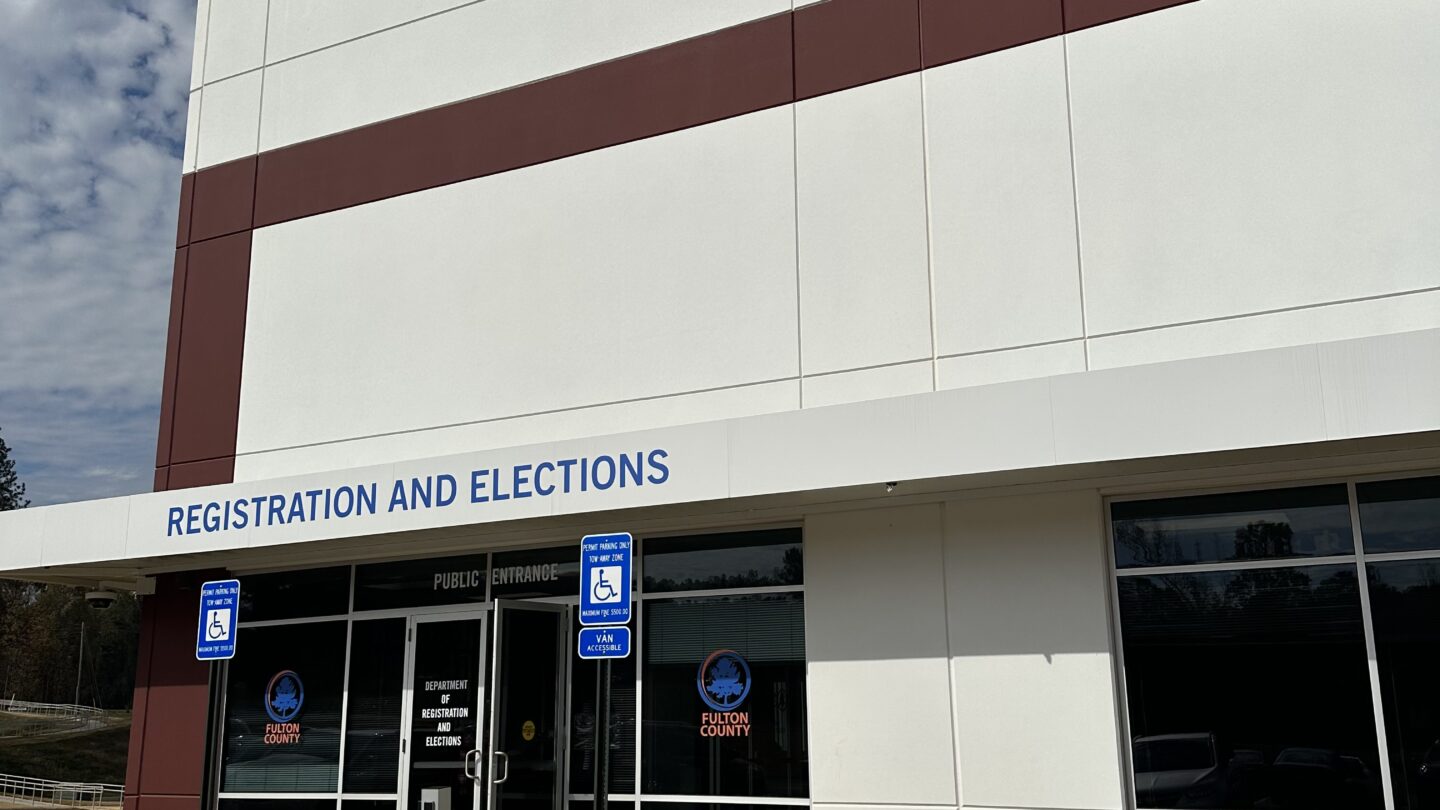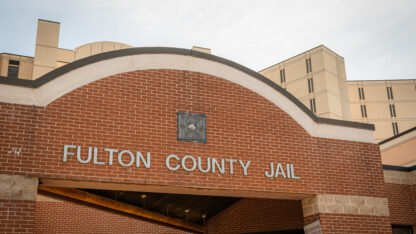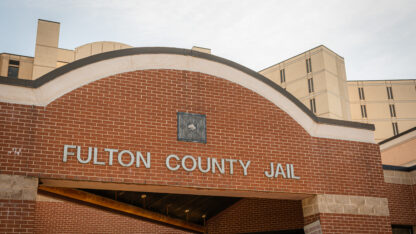Possible fentanyl-laced letter sent to Fulton County Elections Office, Georgia officials say

Nov. 13 update: A spokesperson for Georgia Secretary of State Brad Raffensperger confirms the letter sent to a Fulton County Elections Cffice tested positive for opioids after its interception.
A potentially fentanyl-laced letter has been sent and is on the way to a Fulton County Elections Office, according to Georgia Secretary of State Brad Raffensperger.
The letter was part of a batch of five letters — four went to elections offices in Washington state and contained suspicious powders. At least two of those letters tested positive for fentanyl. Federal authorities discovered that a fifth letter was addressed to the Fulton County Elections Office in Fairburn, and they alerted Georgia authorities.
“It’s still in transit. It hasn’t arrived yet,” Raffensperger said at a press conference on Thursday. “We’re trying to intercept it before it gets here.”
Raffensperger said the Fulton County Elections Office is prepared in case the letter arrives there, including taking training on naloxone, the spray known as NARCAN that treats opioid overdoses.
Raffensperger’s office put out a notice about the incident to all 159 counties across the state.
“We just wanted to make sure that everyone had that awareness and just had their antenna out for anything that looked a little bit different than normal,” he said.
Many election offices across the United States have taken steps to increase the security of their buildings and boost protections of workers amid an onslaught of harassment and threats following the 2020 election and the false claims that it was rigged.
Fulton County has been a major target of those claims, which have been repeatedly debunked and have led to multiple lawsuits. One is a criminal case against former President Donald Trump and others for working to overturn the 2020 election, and another is a defamation suit filed by two Fulton County election workers against former New York Mayor Rudy Guiliani.

Raffensperger said in a statement to the Associated Press that his office was working to determine whether any Georgia officials received such threats.
“Election officials should be free from fear and intimidation, which is why I’ve called on the General Assembly to increase penalties for election interference,” Raffensperger said. “We will work tirelessly to ensure that Georgia elections remain free, fair and secure.”
The news comes as Fulton County conducted local elections on Tuesday. Elections also took place across the country.
The Georgia connection surfaced after authorities in Washington state said four county election offices had to be evacuated as election workers were processing ballots cast in Tuesday’s election, delaying vote-counting.
Election offices in Seattle’s King County and ones in Skagit, Spokane and Pierce counties received envelopes containing suspicious powders. Local law enforcement officials said the substances in Kings and Spokane counties field-tested positive for fentanyl. In at least one other case, the substance was baking soda.
Tacoma Police spokesperson William Muse said a message inside the envelope received by Pierce County election workers said “something to the effect of stopping the election.”
Muse said “there was no candidate that was identified. There was no religious-affiliated group identified. There was no political issue identified. It was just that vague statement.”
Washington Secretary of State Steve Hobbs said the incidents in his state were “acts of terrorism to threaten our elections.”
A spokesperson for U.S. Department of Justice said the FBI and U.S. Postal Inspection Service are investigating, but had no further comment.
Fentanyl, an opioid that can be 50 times as powerful as the same amount of heroin, is driving an overdose crisis deadlier than any the U.S. has ever seen as it is pressed into pills or mixed into other drugs. Researchers have found that the risk of fatal overdose from accidentally briefly touching or inhaling the drug is low, however.
Associated Press writers Gene Johnson in Seattle and Lindsay Whitehurst in Washington contributed to this report.








